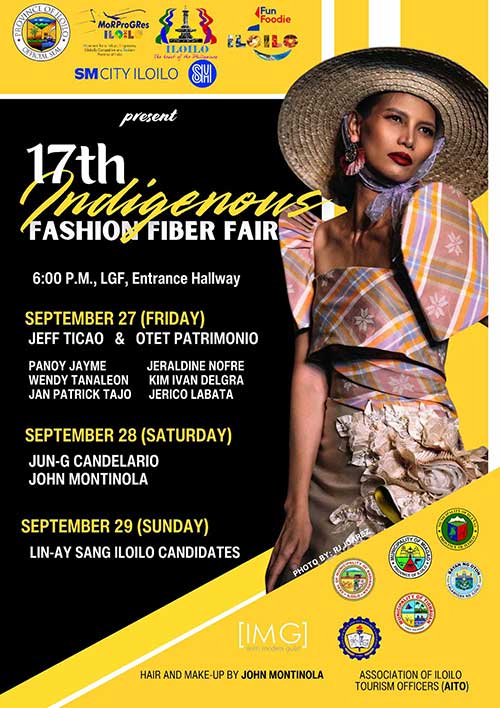
For centuries, hand-loom weaving has been a vital part of Iloilo’s cultural heritage, passed down through generations and showcasing the creativity and skill of talented artisans.
The hand-loom weaving industry has played a significant role in Iloilo’s economy, especially in the late 18th century, when woven textiles were highly valued trade items. The industry has provided employment to many skilled weavers, especially women in remote barangays who continue their ancestral legacy. Commercial production of hand-woven textiles remains an important contributor to the Ilonggo economy.
By the late 1980s to mid-1990s, traditional weaving skills faced the threat of extinction in several communities across Iloilo. In response, a growing movement sought to revive hand-loom weaving as a sustainable, eco-friendly alternative to mass-produced textiles. Early efforts, supported by the Department of Trade and Industry (DTI), focused on helping weavers regain traditional skills, adopt natural dyes, and secure looms and fibers.
Today, the hand-loom weaving industry not only preserves traditional techniques but also promotes fair trade and ethical practices. By choosing hand-loomed products, consumers help preserve this craft and support the livelihoods of local artisans.

In the towns of Oton, Tigbauan, Igbaras, Miagao, Badiangan, Janiuay, and Dueñas, loom weaving is a thriving home-based industry, contributing significantly to local economies and family incomes. To safeguard this cultural heritage, the Iloilo Provincial Government, through the Provincial Culture, Arts, History, and Tourism Office, has taken steps to promote and preserve the craft, most notably through the annual Indigenous Fiber Fashion Fair.
Established in 2008 in partnership with SM City Iloilo, the Indigenous Fiber Fashion Fair features exhibits, demonstrations, and fashion shows that highlight the local weaving industry. In 2015, the event evolved into a collaboration with ISAT-University’s Fashion Design and Merchandising program, providing a platform for emerging designers. Many of these designers have gone on to gain recognition in Iloilo and across the country.
This year, six emerging fashion designers are poised to take the stage: John Patrick Tajo, Jeraldine Nofre, Donato Peniero, Wendy Tanaleon, Kim Ivan Delgra, and Jerico Labata. These student designers focus on reinterpreting Ilonggo artistry and craftsmanship, using locally hand-woven fabrics produced specifically for their brands by a small community of artisan weavers. Their devotion to local handcraft traditions promises to make their designs among the most distinctive in the industry.
Fashion shows featuring these designers will be held at 6 p.m. at SM City Iloilo’s Lower Ground Floor, Entrance 4 Hallway (fronting BDO). Designers Jeff Ticao and Otet Patrimonio will present on September 27, followed by John Montinola and Jun-g Candelario on September 28. The finale on September 29 will feature the Lin-ay Sang Iloilo candidates.
The 17th Indigenous Fiber Fashion Fair is part of Iloilo Provincial Government’s Tourism Month celebration, alongside AgriByahe and Bugana, running from September 26 to 30, 2024. The event is co-presented by SM City Iloilo and supported by ISAT-U’s Fashion Design and Merchandising students, IGUIDES, John Montinola, Iloilo Models Guild, and Daily Guardian.





















